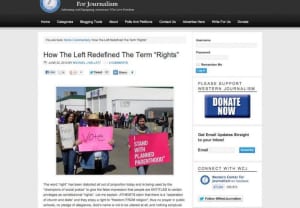Critiquing constitutional readings: introduction and underdetermination
By Kristopher A. Nelson
in
July 2012
700 words / 3 min.
Tweet
Share
There are many challenges when lay people “read” the U.S. Constitution. To illustrate some of these challenges, I think it’s useful and instructive to critique a specific analysis of the Constitution.

Please note that this post is from 2012. Evaluate with care and in light of later events.

There are many challenges when lay people “read” the U.S. Constitution. Most lay interpreters, regardless of political belief, ignore the centuries of Constitutional interpretation that gives additional meaning to everything in the document. We are, after all, a common-law nation with a constitutional backdrop, not a civil-law jurisdiction where (more of) everything is in the text itself. In common-law systems like ours (and unlike France or Germany, for example), court decisions are themselves law — those who want complete deference to legislative decisions are arguing for a civil law system where judicial decisions do not form binding precedent.
But even without considering the centuries of precedent that give meaning to the written words, many lay readers infuse even the “plain meaning” of written law with their own interpretations. In short, they struggle with the kind of “close reading” that lawyers (and others) utilize.
On the other hand, they sometimes invest too much power into specific words (“of” vs. “from,” for example) — close reading like this is indeed critical to interpreting law, but no individual word or phrase alone is entirely determinative.
Adding to the confusion is the problem of what is known in the philosophy of science as underdetermination: the words (evidence) we have permit multiple interpretations. What we have is not enough to definitively determine only one meaning; multiple interpretations are supportable by the text. (This doesn’t mean any interpretation is possible, nor that some are not better than others, only that more than a single interpretation is both possible and reasonable.)
The problem of underdetermination is exactly why our legal system is an adversarial one. Having two sides battle as they put forth competing interpretations is a good (although not the only) method of finding a “best” interpretation or application of the law. This is also why it is possible to have 5-4 decisions from the Supreme Court without either side necessarily being wrong about the law (and why we end up defining “wrong” as being in conflict with the Court majority, since otherwise we’d lack any definitive reading, and might well be caught in the morass of relativism, a.k.a., politics).
To illustrate some of these challenges, I think it’s useful and instructive to critique a specific analysis of the Constitution. At the moment, it is conservative, libertarian, and right-wing analysts who generally spend the most time explaining what the Constitution means. Liberal commentators have generally stuck to criticizing right-wing versions of Constitutional meaning or written analyses of interest mostly to scholars. Garrett Epps writes:
Some of the responsibility lies with progressive legal scholars, who are well situated to explain the Constitution to the public. It isn’t that they have failed; it’s that they seldom try. Scholars from top schools hold forth with polysyllabic theories of hermeneutics that ordinary citizens can’t fathom. Meanwhile, conservatives don’t hesitate to speak directly to the public.
In the absence of liberal attempts to explain the Constitution, I will accordingly focus initially on a right-leaning Constitutional reading provided by Michael J. Nellet, written for The Western Center for Journalism: “How The Left Redefined The Term ‘Rights.’” Nellett’s commentary attacks the idea that “people are entitled to certain privileges as constitutional ‘rights.’” The Western Center for Journalism works “to provide quality journalism and reporting by exposing bias and falsehoods in the liberal, mainstream media.”
If anyone would like to contact me with a liberal example to critique, I would appreciate it.
You can read my articles examining Nellett’s take on the Constitution, including discussions of religion, equal protection, and abortion over the next couple of weeks.